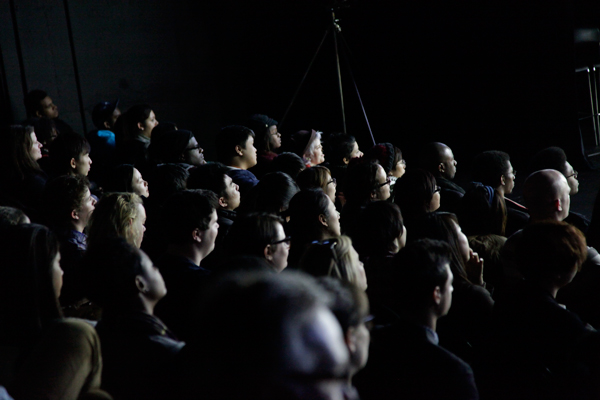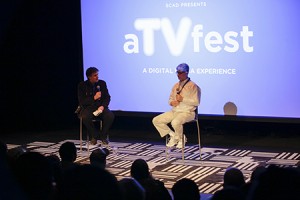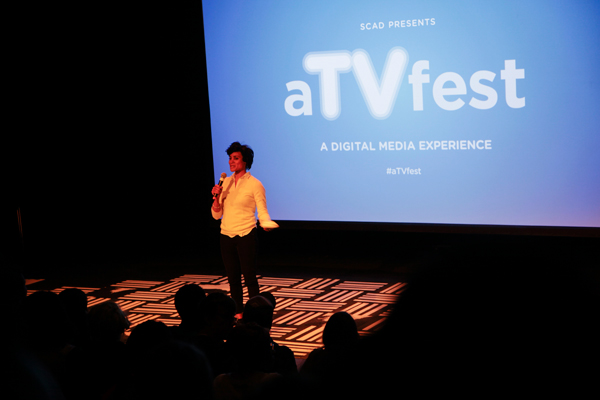“I love everything Frederator! I’ve loved Cartoon Network since I was a kid,” said Jeremy Jiovonni, an M.F.A. advertising student. In the room designated “Stage 2” in the new SCADshow theater, Jiovonni was looking forward to seeing the screening of Cartoon Network and Adult Swim’s show premieres that evening at aTVfest. Fred Seibert, the founder of Frederator Studios, was to hold a discussion panel afterwards as well. Seibert was the man responsible for bringing “Dexter’s Laboratory,” “Johnny Bravo” and “Adventure Time” to television sets across the country on Cartoon Network, as well as “The Fairly Oddparents” on Nickelodeon.

The audience consisted mainly of students, with their book bags in tow, chattering excitedly before the screenings began. A few students snapped pictures with their phones for the memory. The response was full of laughter at the comedic cartoon shows that played one after the other during the screening portion. There were full episodes of “Adventure Time,” “Regular Show,” “Uncle Grandpa” and “Rick & Morty.” Immediately following they were treated to a reel of shows that Frederator Studios have produced on television and on their YouTube channel, Channel Frederator.
When Seibert took the stage, he was greeted with great applause before host Jefferson Graham started things off. Seibert told of the direction he was taking Frederator Studios with the new YouTube network of channels to which budding animators could connect to online. He regaled the audience with stories of how he came to green-light some of the most popular shows that are watched today.

Initially, he had said “no” to “Adventure Time” when it was pitched to him. “I said, ‘We’re obviously not making that!’” Seibert said. He went on to explain how he thought it looked like a child drew it. But in the end the show was made after “being shamed into it,” as he called it, by a colleague who pointed out how Seibert had genuinely laughed at the demo. Once the floor was open for questions, three were taken from the audience that Seibert answered. One woman asked about the process of pitching and getting an animated show picked up by his studio. Seibert answered, “I only green-light storyboard pitches. I do not green-light ideas; everybody here has ideas. They pitch us the whole cartoon and we say ‘yes’ or ‘no’ fairly rapidly. Again, I don’t believe in belaboring this stuff.”
Seibert concluded the panel discussion by sharing a bit of his personal delight in how many young animators, particularly young women and people of color, were in the audience that evening. “Seeing you all here gives me great hope for the future of the film business because you are the ones that are inventing the future in like real-time right now,” he said, “And just from a — leaving out the artistic value of all of these voices and all that — just on a business perspective, it’s going to be awesome! And then I will say artistically it will probably be even more awesome.”

At the end, people were welcome to meet and speak with Seibert as he came to the front of the stage. “I loved it!” said Jiovonni about the whole presentation. When asked if he was going to go meet Seibert like so many others were, he shook his head with a smile. “No, I want to talk to her,” he said, pointing over at the Cartoon Network/Adult Swim executive who was present to answer students’ questions. He was waiting for his chance to speak with her among a group of other eager looking students. Meanwhile on the other end of the stage, Seibert took pictures with his fans and handed out his business card.

























